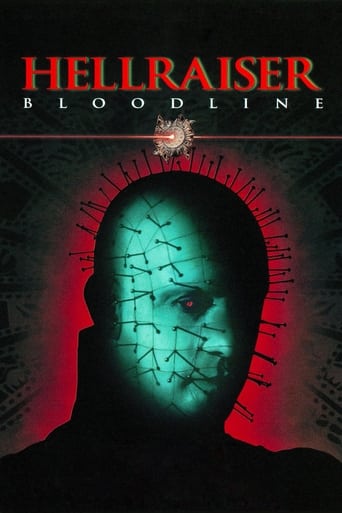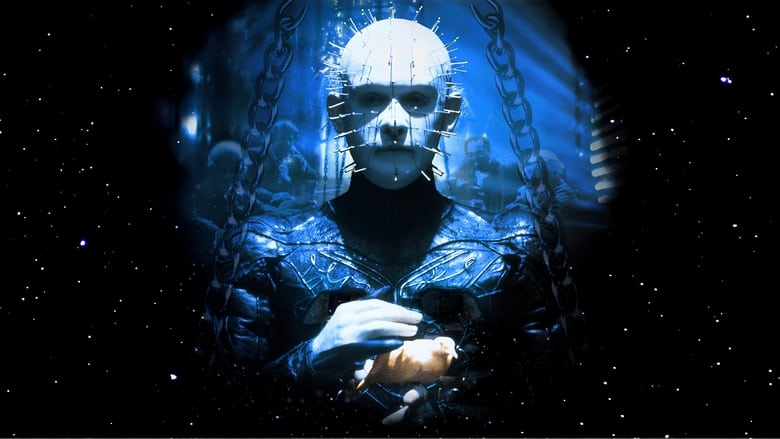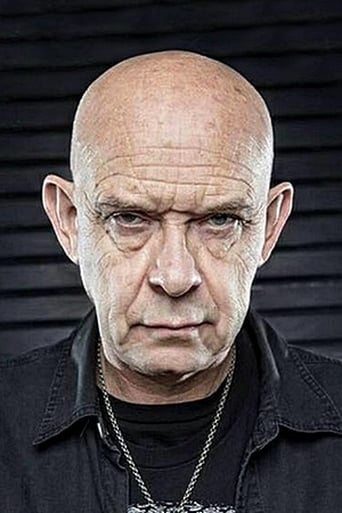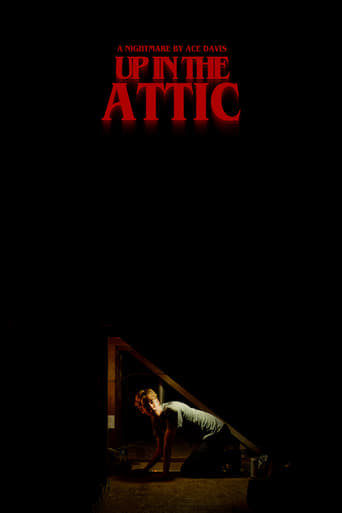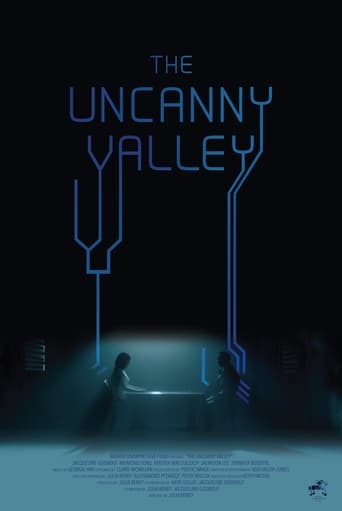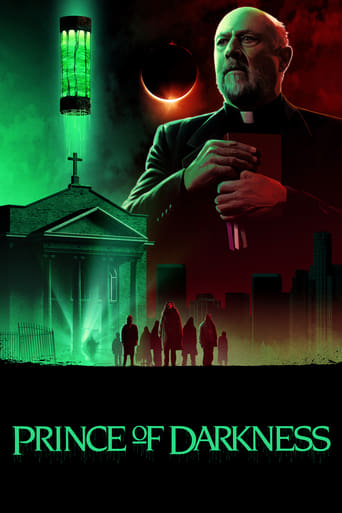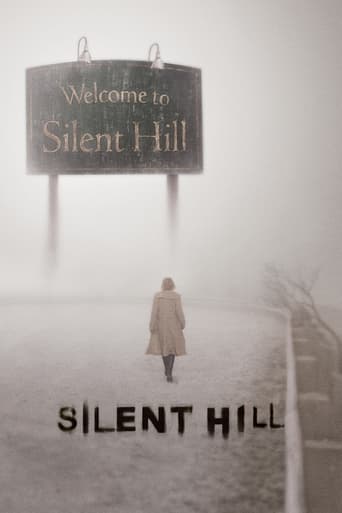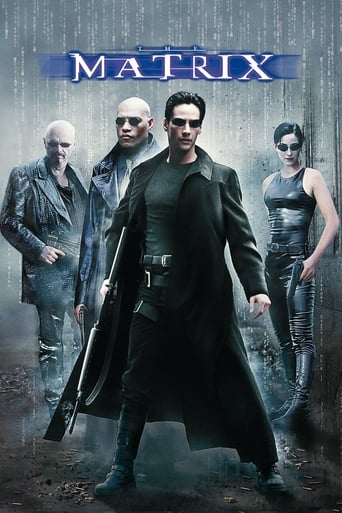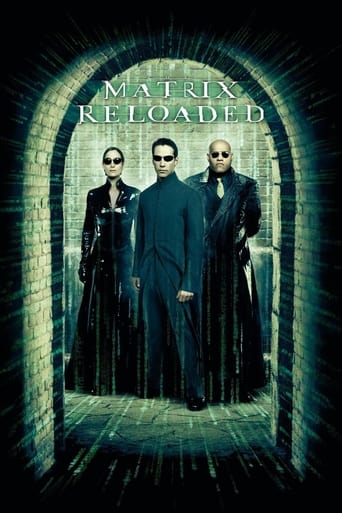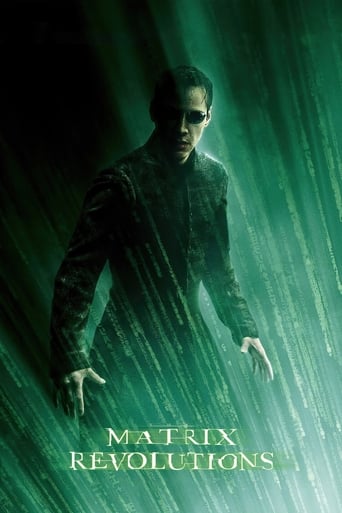Hellraiser: Bloodline (1996)
Three generations of the same family deal with the consequences of unleashing the forces of hell.
Watch Trailer
Cast
Similar titles

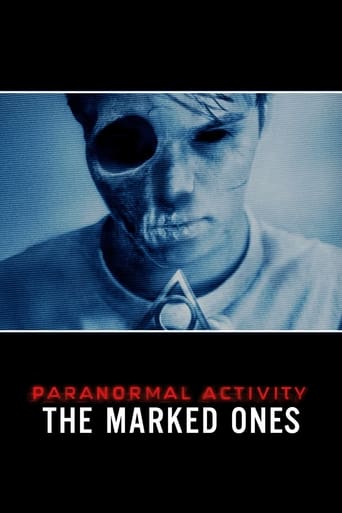
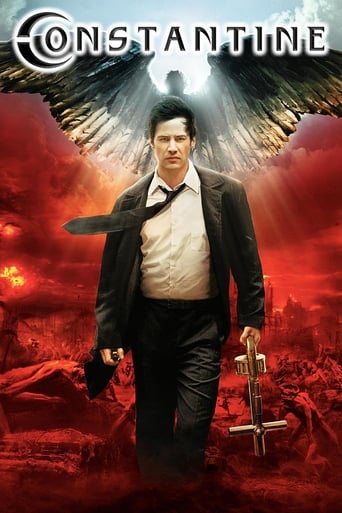
Reviews
What makes it different from others?
Very good movie overall, highly recommended. Most of the negative reviews don't have any merit and are all pollitically based. Give this movie a chance at least, and it might give you a different perspective.
The biggest problem with this movie is it’s a little better than you think it might be, which somehow makes it worse. As in, it takes itself a bit too seriously, which makes most of the movie feel kind of dull.
True to its essence, the characters remain on the same line and manage to entertain the viewer, each highlighting their own distinctive qualities or touches.
You can see that they tried to do something a bit different but in doing something different they are not necessarily doing something good. This is not that good at all but is still better than Hellraiser III: Hell on Earth (1992). It does lose charm and attitude for silly story progression and over-the-top time gaps. It is just 'Hellraiser in Space' but with a different title. Watchable if you liked the previous films but little other reason to watch this.
Following the ludicrous but profitable Hellraiser III, Clive Barker and Pete Atkins sought to restore some dignity to the series, and from their brainstorming sessions emerged one of the franchise's finest screenplays. Barker suggested that Atkins write a family saga set during three eras, and Atkins one-upped him by focusing on three generations of the damned LeMarchand family. On paper it is one of the few truly epic horror films, following three generations of the family that crafted the Lament Configuration, and their centuries long quest to atone for the hell that they've unleashed. Make-up effects artists Kevin Yagher was tapped to direct, and his ambition matched that of Barker and Atkins; with this film they would create the ultimate ending to the saga of LeMarchand's box, and of its most famous demon, Pinhead. Unfortunately it was not to be. The production was not given nearly enough time or money to realize Atkin's story, and while Yagher did his best under the circumstances, his initial edit made the studio very nervous. Simply put, Pinhead was considered the series's cash cow, and he didn't appear in the movie until about 40 minutes in. Soon the film was taken out of Yagher's hands; its linear story was rearranged so that Pinhead appeared in the first act, and several scenes were added or re-shot by an uncredited Joe Chappelle to make sense of the severely truncated mess that Miramax now had on its hands. As the film no longer bore any resemblance to his original conception, Yagher chose to be credited as "Alan Smithee." The final product, though entertaining, is thus an extremely frustrating experience for any die-hard fans of Hellraiser.An interesting wrinkle emerged about ten years after the fact, when a very rough VHS copy of a work-print was leaked onto the internet. Though the film had already been heavily compromised by this point in its production, and (as work-prints tend to do) it features several unfinished special effects, the work-print does feature several scenes which were cut from the theatrical version. A couple fan-edits followed, both of which sought to combine both the theatrical release and the work-print into something more closely resembling the original screenplay. Having already seen the theatrical version a few times, I chose to watch one of these fan composites and compare it to Pete Atkin's script. The version I watched disingenuously refers to itself as a director's cut, but it still features some of the material shot by Chappelle, and several significant gaps remain in the story. Because some important scenes were either never filmed or have never surfaced, several aspects of the first act (set in 17th century France) are actually more confusing here than they are in the theatrical version. By arranging the story chronologically, however, the three generations of LeMarchands (each convincingly played by Bruce Ramsay) can now be appreciated as different progressions of a single character. While this pseudo-director's cut still isn't the lost masterpiece that fans are craving, it did increase my admiration for what the filmmakers were trying to achieve. The idea of an old-fashioned Hell (personified by Valentina Varga as Hell's sultry princess, Angelique) in conflict with the more ordered Hell of Pinhead is rich with possibilities, and it clearly struck a chord with Clive Barker. Though Barker repeatedly disavowed the Hellraiser sequels, he returned to this theme in The Scarlet Gospels (his literary finale to the Hellraiser mythos), and several other images are quoted almost verbatim from Atkin's screenplay - I was particularly struck by how both authors characterized Pinhead's chains as snakes coiled to strike. And even in its abortive form, the film still displays a confident visual sense from first-time director Yagher. Even the film's weakest segment (in which the modern John Merchant's family is held hostage by Pinhead) still features some spectacularly creepy visual flourishes. As the credits roll on either version, one is thus left pining for the movie that could have been. It wouldn't be too much of an exaggeration, I think, to call this film Hellraiser's own Magnificent Ambersons in terms of ambition and compromise.I would be remiss not to mention the film's most controversial section, in which Pinhead and Dr. Paul Merchant match wits aboard a futuristic space station. Outer space is usually regarded as the location in which any horror franchise loses its dignity. While the idea might seem inherently campy, I think the meeting of Hell with the cold void of outer space is inspired. What lets it down here is some lackluster CGI and some annoying concessions to the genre (e.g. characters splitting up to die slasher movie deaths, lame chase sequences, etc.) This potential would be better realized in the Hellraiser-inspired Event Horizon, which is freed from these potential pitfalls, I think, by being a standalone movie. Without the baggage of an iconic boogeyman like Pinhead, it's free to focus more on psychological horror and character development, and thus it sadly plays like a better Hellraiser-in-Space than the real one.Gutted though it may have been, Hellraiser IV proved profitable enough at the box office to pave the way for a seemingly never-ending series of DTV sequels, starting with the still contentious Hellraiser: Inferno.
The fourth instalment of the already-tired Hellraiser franchise signalled the last time that original creator Clive Barker would be involved, and also the final film of the series to be shown on the big screen, with the subsequent sequels heading straight to VHS or DVD. Doug Bradley, who at this point was the only surviving cast member from Barker's terrific 1987 original, described Hellraiser IV: Bloodline as the "shoot from Hell", and its troubled production saw director Kevin Yagher demand his name be removed from the credits, instead opting for the go-to pseudonym Alan Smithee. While things never looked good for the film, Part IV of Miramax's cult franchise isn't actually quite as bad as you would expect.In 2127, engineer Dr. Paul Merchant (Bruce Ramsay) uses a robot to solve the Lament Configuration puzzle box on board space station The Minos. The opening of the box destroys the robot, and Merchant is taken in for questioning by a group of armed guards suspicious of his intentions. Whilst being interrogated by the groups leader, Rimmer (Christine Harnos), Merchant reveals that he is part of a cursed bloodline that stretches back to 18th-century France, where his ancestor, toy-maker Phillip L'Merchant (also Ramsay), builds the box for a rich aristocrat who desires to summon a slave-girl from Hell. While L'Merchant fails to prevent the demon Angelique (Valentina Vargas) arriving in our world, generations later New York architect John Merchant (Ramsay again) is haunted by visions of the box, building a skyscraper resembling the Lament Configuration.After two sequels with little to recommend other than Kenneth Cranham's wonderfully over-the-top thesping, Bloodline at least attempts to inject a fresh take on the Hellraiser universe. The decision to portray the arrival of Hell on Earth over three vastly different time periods is an interesting one, even if it is somewhat clumsily handled and often poorly acted. Yet for the bulk of the film we are stuck in the less-interesting modern day, or 1996, and it is here that Bloodline suffers from formulaic storytelling. The introduction of the demon Angelique offers the chance for some twisted sexual tension between her and Pinhead (Bradley), yet this isn't explored enough, and ultimately fizzles out in favour of more time with the over-exposed, iconic Cenobite, whose role was significantly beefed up by the studio following Yagher's departure. It's certainly one of the best of the series' sequels, yet given how bad the movies that followed are, that's hardly saying much.
A bad Alien rip off, that is constantly having flashbacks to a different, much better movie.This movie reeks of studio interference. Only a small part of the movie is set forcibly on a space station, while the rest either takes place in the past or the present. The parts of the movie where it flashes back to the creation of the puzzle box, are arguably the best parts of the movie. But the movie suffers from having too much Pinhead forced into it, when he wasn't even needed for the plot. The movie already has a villain, and would have worked much better if they focused on her instead. But unfortunately we end up with a plot where the motives of the villains are now a complete contradicting mess. Previously established lore is completely contradicted, and they save the big transformation of the lead villain till waaaaaay too late in the movie.Another problem with the movie, is that they now start making quite literal connections to a pseudo Christian hell. Previous movies always kept it rather vague, and the world that the puzzle box connects to was just another dimension, rather than actually being the hell from the bible. Then again, writer Clive Barker also commits this sin in his sequel Scarlet Gospels, so who cares any more at this point? Then they end the movie by basically ripping off the ending to Aliens, and cue credits. What a waste of potential.
